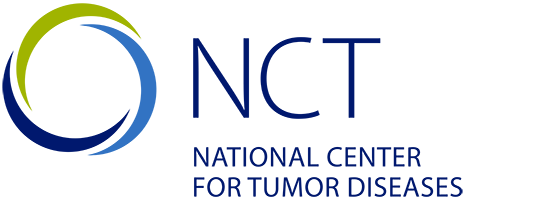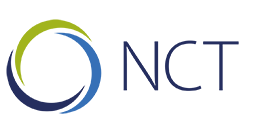First national conference Patients as partners in cancer research at the DKFZ
The first national conference Patients as Partners in Cancer Research took place from September 30 to October 2, 2022. The event was organized by patient representatives and held at the German Cancer Research Center (DKFZ). The participants discussed under the motto "Learn. Cooperate. Change" how patient participation in cancer research can be promoted in Germany.
The perspectives of cancer patients are often already taken into account in patient care, for example through self-help representatives or patient advisory boards in hospitals. In cancer research, the systematic involvement of patients is still in its infancy. Therefore, an important goal of the National Decade Against Cancer, which was proclaimed by the Federal Ministry of Education and Research (BMBF) at the beginning of 2019, is to involve patients in all phases of oncological research.
The national conference "Patients as Partners in Cancer Research", which took place at the DKFZ for the first time this year, is intended to help further promote the integration of the patient perspective in cancer research. The event was aimed at representatives from self-help organizations and patient advocacy groups and aimed to deepen knowledge and promote exchange.
Bettina Stark-Watzinger, Federal Minister of Education and Research, opened the conference with a video message. In her welcoming address, she said: "In the fight against cancer, research is the most powerful tool we have. We have been fighting this battle for a long time and we are learning every day. But what officially begins today with this conference is something of a new era."
Markus Wartenberg, Deputy Chairman of the Board of the German Sarcoma Foundation and spokesperson for the provisional national NCT Patient Advisory Board, together with Bernd Crusius, Managing Director of Haus der Krebs-Selbsthilfe - Bundesverband e.V., gave an overview of self-help and patient participation in Germany. Markus Wartenberg made it clear: "Patients with their unique expertise should be partners at eye level. Patient participation must be a matter of course in all phases of research." Clinical trials are of great importance in this context, as they give patients rapid access to advances in cancer research. Bernd Crusius emphasized: "Patients must already be involved in the design and development of clinical trials. The focus should be on patient-oriented language, study registers that are understandable to laypeople and low-threshold access." The potential of non-commercial science-driven clinical trials (Investigator Initiated Trials) in particular has not been exhausted, although these usually answer very relevant questions from a patient and healthcare perspective.
New structures are needed to enable patients to systematically participate in cancer research. This is why the DKFZ was the first research institution in Germany to establish the Cancer Research Patient Advisory Board in 2018.
Michael Baumann, Scientific Director and Chairman of the Board of the DKFZ, and Rudolf Hauke, Chairman of the DKFZ Patient Advisory Board, said: "By establishing the Cancer Research Patient Advisory Board, the DKFZ has taken on a pioneering role. But it is also necessary to expand patient participation in Germany beyond this. To this end, we have firmly implemented the partnership between patients and researchers in the concept for the expanded National Center for Tumor Diseases (NCT). Because the perspective of patients makes research better. And better research leads to better opportunities in the prevention, early detection, diagnosis and treatment of cancer. We are delighted that our initiative has now gained so much momentum in 2017/18 and that we are on the way to making patient participation at eye level the new normal in cancer research too. This first conference makes a key contribution to this."
The conference offered a varied program over three days: discussion panels provided insights into cancer research in Germany. Lectures delved into further aspects and showed very specifically how patients can participate, for example in the assessment of research proposals. The conference was rounded off with seminars on personal skills, such as language and presentation techniques. A joint networking dinner provided an opportunity for exchange.
Contact for the press:
Dr. Sibylle Kohlstädt
German Cancer Research Center (DKFZ)
Strategic Communication and Public Relations
Im Neuenheimer Feld 280
69120 Heidelberg
Phone: +49 6221 42-2843
Fax: +49 6221 42-2968
E-mail: s.kohlstaedt-at-dkfz.de
www.dkfz.de
German Cancer Research Center (DKFZ)
With more than 3,000 employees, the German Cancer Research Center (DKFZ) is the largest biomedical research institution in Germany. Over 1,300 scientists at the DKFZ research how cancer develops, identify cancer risk factors and search for new strategies to prevent people from developing cancer. They develop new methods with which tumors can be diagnosed more precisely and cancer patients can be treated more successfully. The DKFZ Cancer Information Service (KID) provides patients, interested members of the public and experts with individual answers to all questions relating to cancer. Together with partners from the university hospitals, the DKFZ operates the National Center for Tumor Diseases (NCT) in Heidelberg and Dresden, as well as the Hopp Children's Tumor Center KiTZ in Heidelberg. In the German Consortium for Translational Cancer Research (DKTK), one of the six German Centers for Health Research, the DKFZ maintains translational centers at seven university partner sites. The combination of excellent university medicine with the top-class research of a Helmholtz Center at the NCT and DKTK sites is an important contribution to transferring promising approaches from cancer research to the clinic and thus improving the chances of cancer patients. The DKFZ is funded 90 percent by the Federal Ministry of Education and Research and 10 percent by the state of Baden-Württemberg and is a member of the Helmholtz Association of German Research Centers.


